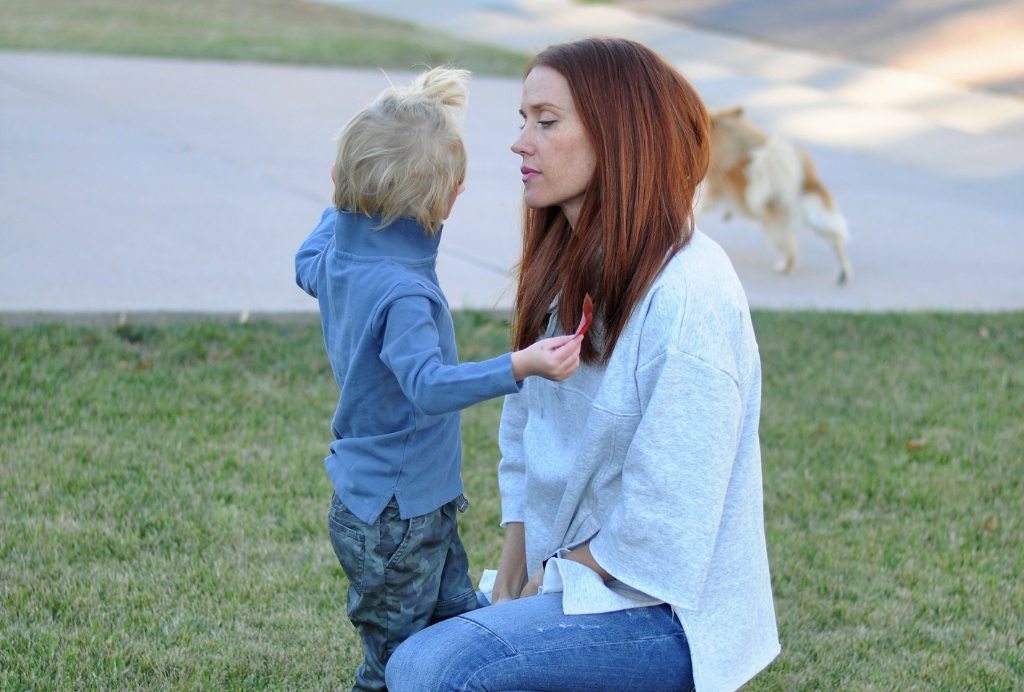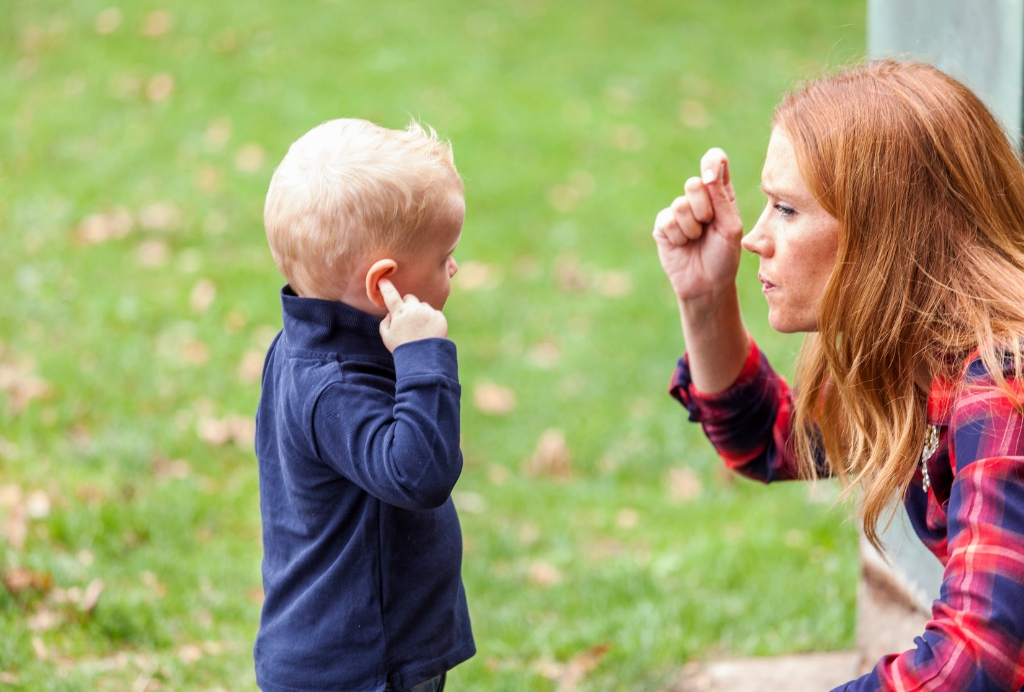The craziness has returned. Meltdowns are back. Sensory seeking is at all time high. Declan’s sensory integration has plateaued. We still do all the same things; we do our very best to use the skills and techniques we learned in occupational therapy and he has stopped responding. We have plateaued. The sensory integration strategies we have been using while AMAZING have lost their bang. The sensory plateau is super common and happens all the time.
A little background. When Declan was diagnosed with SPD, read the post here, we started occupational therapy. We did weekly therapy sessions for just over six months. Towards the end of this time we came to a joint decision that occupational therapy had done wonders and it appeared Declan was ready to come to therapy less often. That happened at the end of December.
Here we are in February and we have plateaued. Essentially that means the techniques and strategies we have been using have run their course. His sensory system as “caught on” to what we are doing and has stopped responding in the way we hope. Swinging doesn’t meet his needs anymore, heavy work seems less effective and his eating troubles have returned.
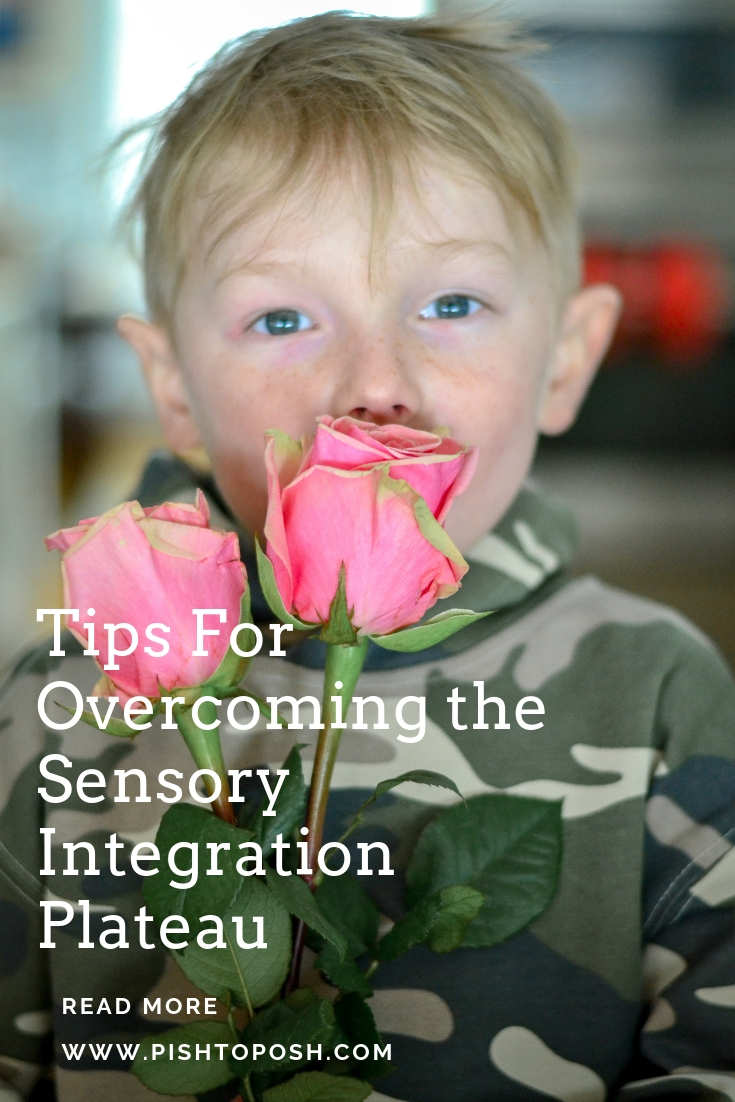
So what do you do when your sensory integration strategies seem to stop working and your kiddo encounters a sensory plateau?
This was, yet another. first for us but over the last couple weeks we have had to spend a lot of time navigating this question. What happens now? So I wanted to share four things we have done to help re-spark the sensory integration and better meet his needs.
Call the Therapist
This may seem like an obvious one but it actually took me a while to do this. Not sure what I waiting for. She was able to offer some advice on additional integration ideas. She reminded me of the things we were already working on and she essentially calmed me down. If she did nothing else it was to ease my mind that this is totally normal.
Our therapist has always maintained an open line of communication so she was happy to chat with me. We also scheduled a few “maintenance” sessions to get him back on track and tackle a few new symptoms we are seeing. Over the phone she offered me a couple ideas for new ways to meet his proprioceptive needs in order to hold us over until our appointment.
Get To The Root Of The Plateau
This one seems simple but in reality this was the hardest piece for us to really figure out. As we started to look at why we were seeing a plateau we really struggled to figure out which of our strategies may not be working anymore… it seemed like everything we tried was failing. And then, one day, Declan walked upstairs and his pants were like 3 inches too short. He had hit a growth spurt. BAM! It hit me that the likely root of the plateau was due to his growth spurt.
When kids hit growth spurts- both physically and mentally- it is really hard for their bodies to manage all of the changing elements. They have sensory needs that fall all out of whack despite great integration techniques. Declan’s body just couldn’t handle it all. Growing takes all his energy and he very little left to respond to sensory input… hence the meltdowns, sensory seeking and general craziness.
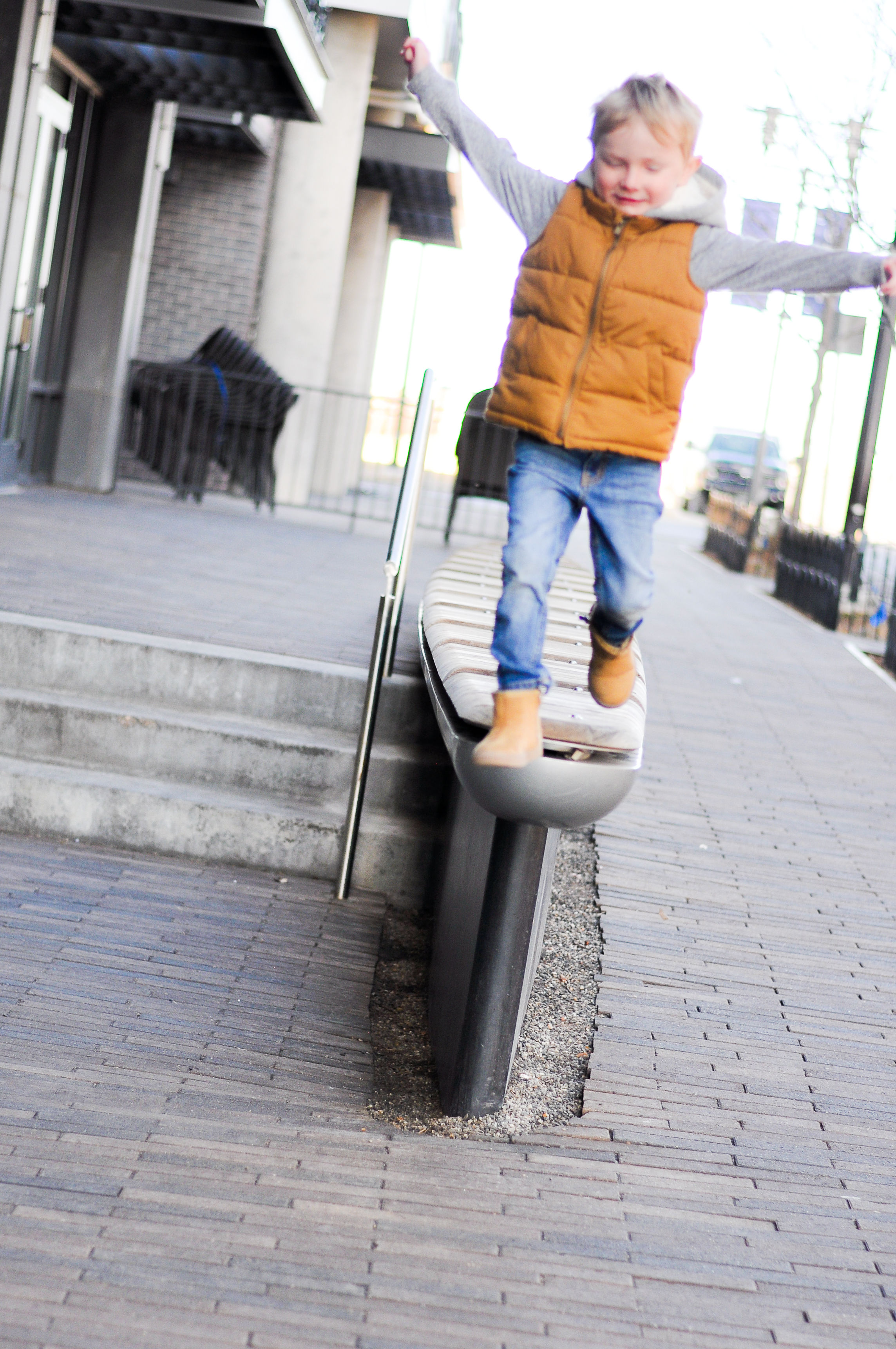
Be Patient and Predictable
Maintain structure and a schedule. This is one of the best ways to deal with and ease the struggles of a plateau. Be consistent in both your schedule and your sensory integration. If there are underlying root causes of the plateau a consistent and predictable schedule will be one of the best ways to combat this issue. Many times kid with SPD crave a predictable schedule, in general, and especially when they seem to be struggling to regulate and processing sensory input. If their bodies can start to anticipate what is coming it can help alleviate any unknowns in the bodies. Providing you kiddo with anticipated activities could help to get them over the sensory plateau as they begin to expect and crave that in turn helping to meet their sensory needs.
Try Some New Resources
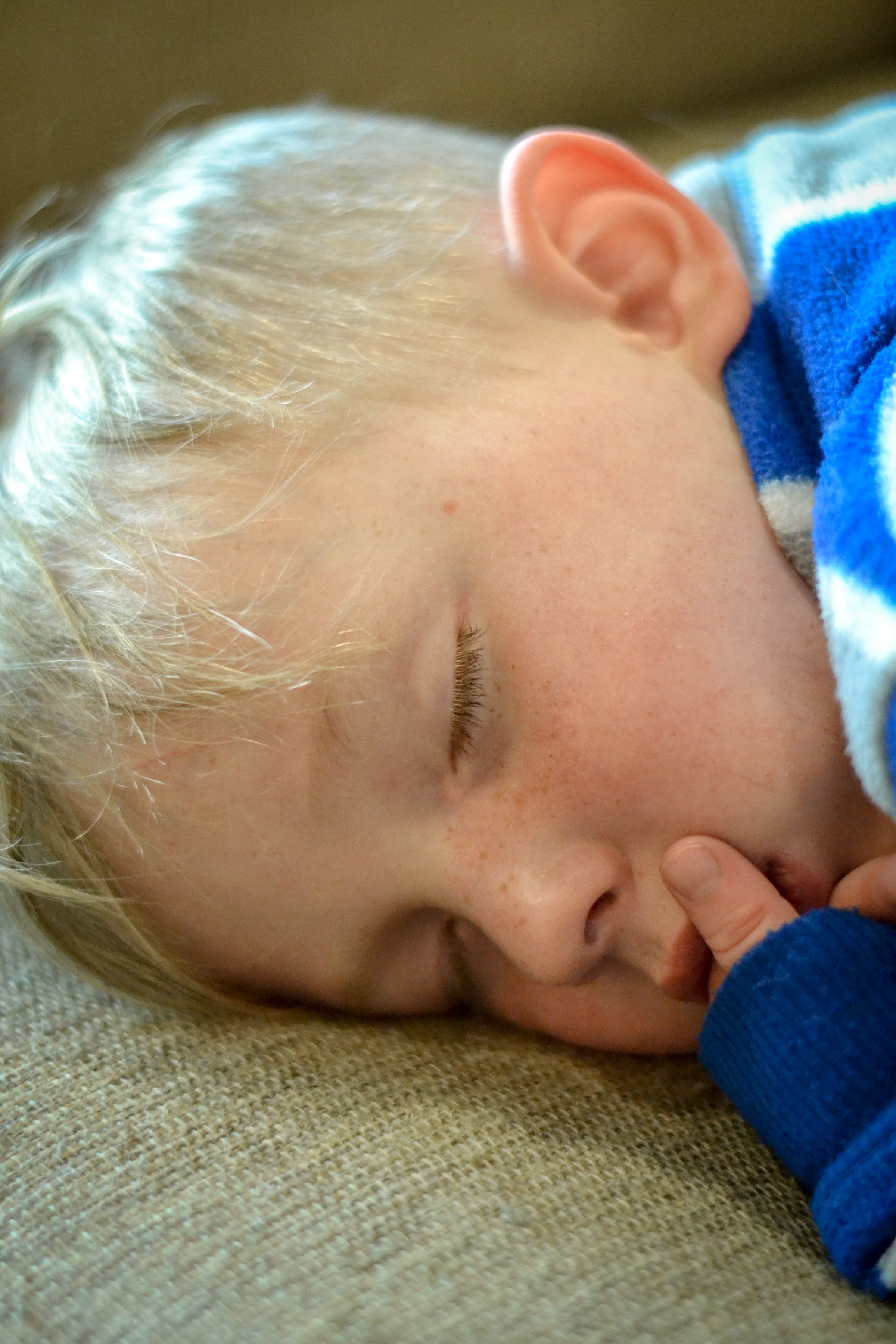
The internet is filled with so many resources. But like you I can be skeptical about what I am reading if I am not sure of the validity of it. But I have done some work for you and found some great online resources that really helped us work through the sensory plateau. I have found a few podcasts and websites that gave us some new ideas and strategies to help meet Declan’s needs.
Podcasts
- The Sensory Project Show Podcast Episode 31
- Naturally Recovering Autism Podcast: Interview With Lindsey Biel
- Tilt Parenting Podcast Episode 76
Websites
Books
- The Out Of Sync Child Has Fun
- The Everything Parents Guide To Sensory Processing Disorder
- Ignore It! How Selectively Looking the Other Way Can Decrease Behavior Problems and Increase Parenting Satisfaction
- The Explosive Child: A New Approach For Understanding and Parenting Easily Frustrated Chronically Inflexible Children
There are so many great ideas out there from other mothers and occupational therapist on Pinterest as well. Make sure to check that out.
The fact is that each resources may not be 100% applicable to your child and your situation but there will be a tip or two in each resources that can help with the sensory plateau.

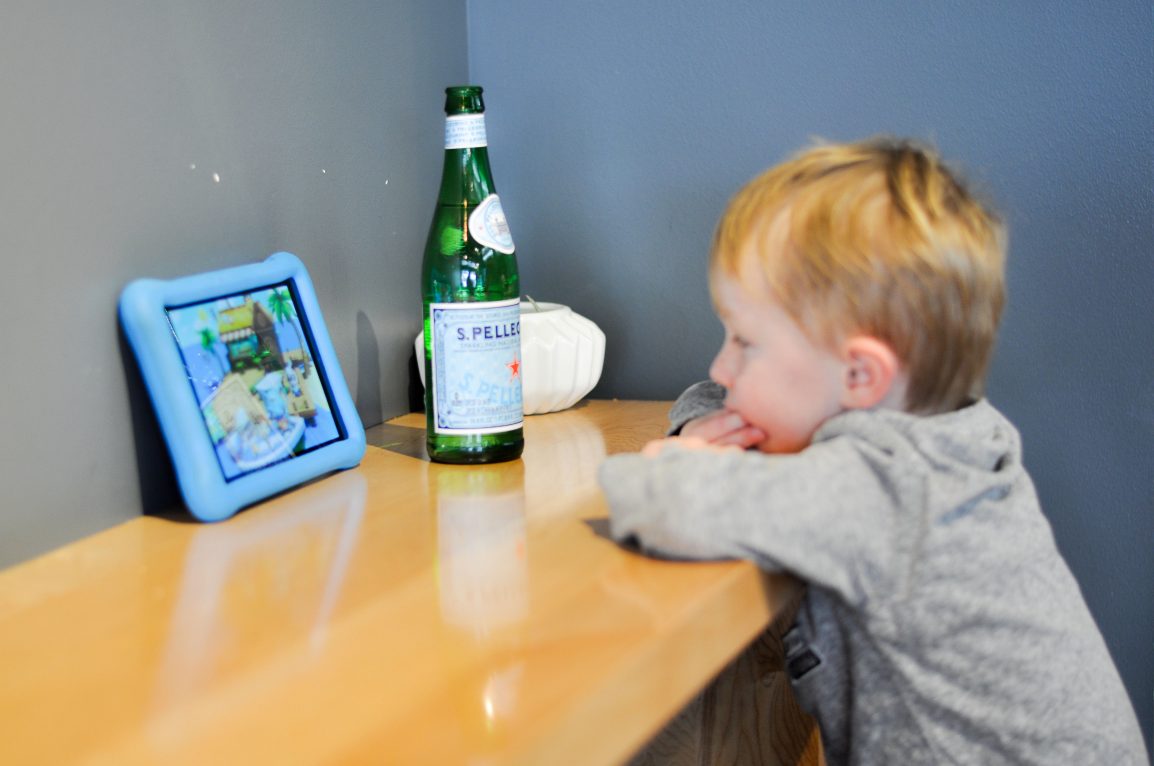
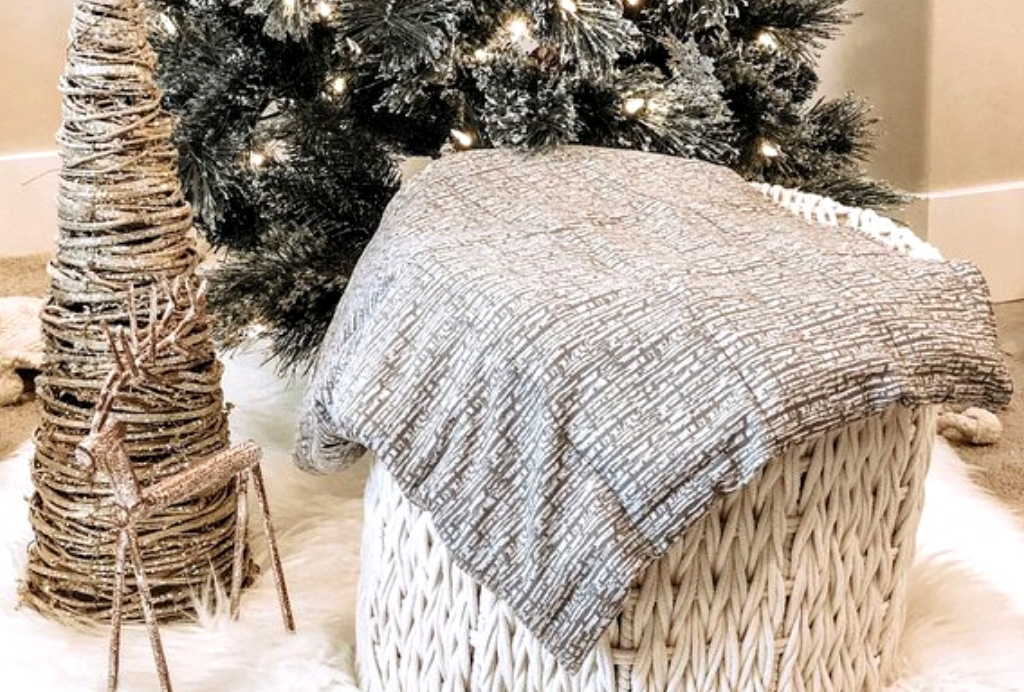

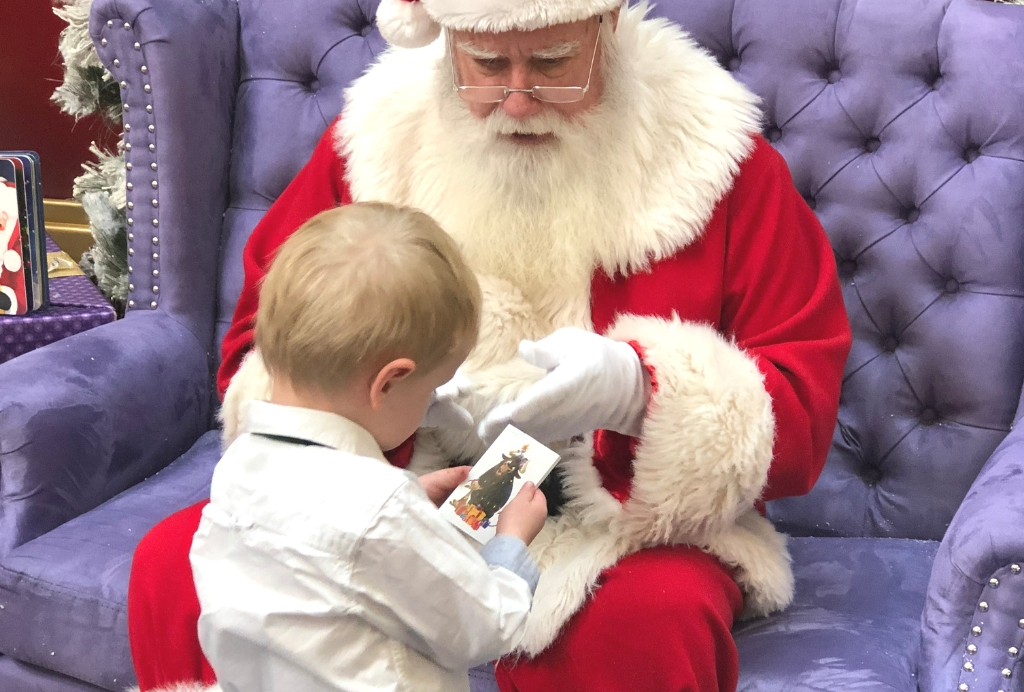

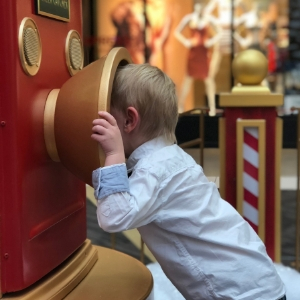 Be Flexible
Be Flexible

